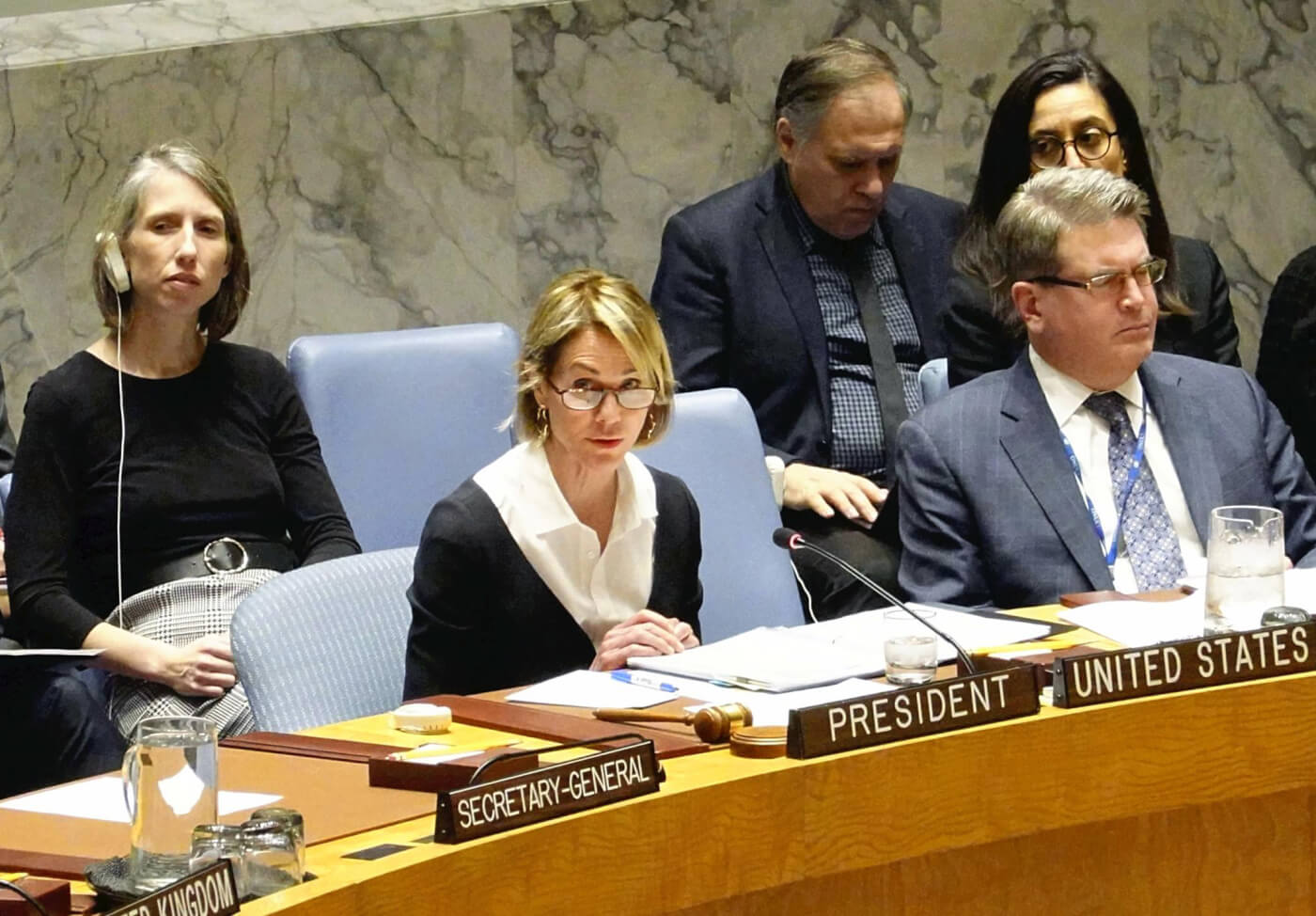On 31 August, the United States vetoed a United Nations Security Council resolution aimed at prosecuting, rehabilitating and reintegrating those involved in terrorism-related activities. The resolution was vetoed because it failed to address repatriation of foreign fighters, an issue that has long-divided Washington from its European allies.
American officials insist that the repatriation from Syria and Iraq of those who went to join the so-called Islamic State (IS) including their families is “the crucial first step”. The U.S. Ambassador Kelly Craft noted that:
“[The resolution] supposedly designed to reinforce international action on counter-terrorism, was worse than no resolution at all.”
Craft further dismissed the resolution as a “a cynical and wilfully oblivious farce.”
The other 14 council members unanimously voted in favour of the resolution, which was drafted by Indonesia and was voted on by email as a result of the COVID-19 pandemic.
The United States maintains that leaving IS supporters and their family members to remain in Syria and Iraq could cause them to “become the nucleus of an ISIS 2.0.”
However, EU member states – who saw considerably higher numbers of their citizens leave to join IS – have cited national security concerns as the primary reason for not pursuing the repatriation of their citizens.
The defeated resolution did support the return of children, but not fighters or their families, in so much that states should facilitate “the return of the children to their countries of origin, as appropriate and on a case by case basis.”
Watch IOHR interview Vera Mironova about her research in the Syrian refugee camps:
Reaction to the vote
In her statement on Monday, Ambassador Craft said:
“It is incomprehensible that other members of this council were satisfied with a resolution that ignores the security implications of leaving foreign terrorist fighters to plot their escape from limited detention facilities and abandoning their family members to suffer in camps without recourse, opportunities, or hope,”
Adding that the Trump administration was “disappointed that Indonesian efforts to draft “a meaningful resolution … were stymied by council members’ refusal to include repatriation.”
The United States has been particularly at odds with France and the United Kingdom – both permanent members of the Security Council – who have opposed the return of fighters and their families, except in the case of a small number of orphans and children.
The British government has consistently argued that those in custody in Syria and Iraq should be put to justice there rather than in the UK.
A UK Foreign Office spokesperson said after the vote:
“We regret the resolution was not adopted. We are working closely with international partners to reduce the risk posed to us collectively by foreign fighters.”
Foreign nationals left in camps
Since the fall of IS, which lost its last Syrian strongholds in early 2019, the largely Kurdish Syrian Democratic Forces (SDF) have held thousands of foreign fighters in the northeastern part of the country.
In al-Hol and Roj refugee camps alone there are more than 70,000 detainees – mainly women and children – connected to Islamic State fighters, living in “very dire conditions.”
U.N. counter-terrorism chief Vladimir Voronkov said in July that his office had received information that 700 people died recently across these two camps, owing soley to the conditions.
Earlier this month, eight children under the age of five died in northeastern Syria’s al-Hol refugee camp, according to UNICEF Executive Director Henrietta Fore.
The camps are mainly inhabited by Syrian and Iraqi nationals, but the International Crisis Group, a Brussels-based think tank, estimates around 13,500 al-Hol residents are nationals of third countries.
Watch IOHR interview Orlaith Minogue, Conflict and Humanitarian Advocacy Adviser for Save the Children, on the urgent need to repatriate foreign children from the Syrian refugee camps:
The group have described the detention sites as “ridden with tuberculosis and perilously overcrowded”, made worse with the arrival of the COVID-19 pandemic.
The need to repatriate these nationals has been emphasised by humanitarian groups and international bodies alike. Earlier this year, U.N. experts warned that despite the loss of its self-styled Caliphate, the extremist group have been mounting increasingly bold attacks in Syria and Iraq and they had reliable information that it is planning for the breakout of its fighters in detention facilities.
————————————————————————————————————————————–
EVENT
You can RSVP to IOHR’s upcoming webinar discussing the impact of the media in framing the discussion around IS returnees HERE.
————————————————————————————————————————————–

